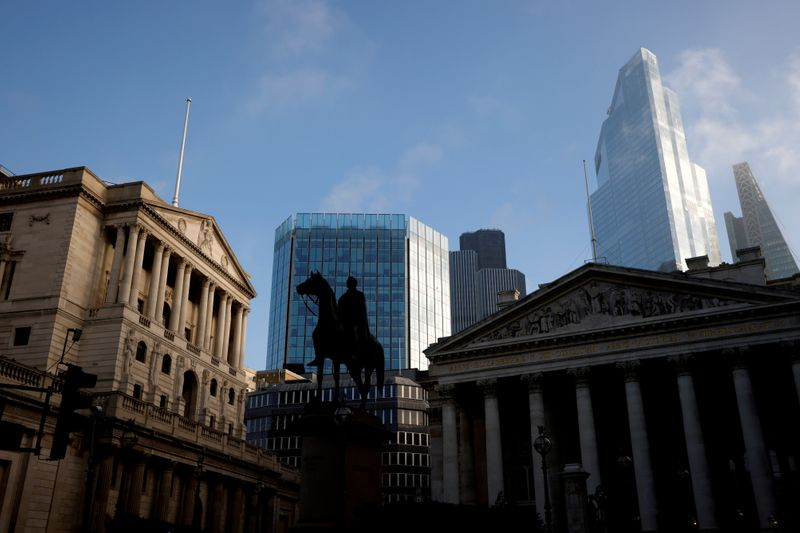Bank of England says banks need 6 months for any sub-zero rates By Reuters

By Andy Bruce, David Milliken and William Schomberg
LONDON (Reuters) – Britain’s banks need at least six months to prepare for any cut in interest rates below zero, the Bank of England said as it kept its stimulus programmes on hold ahead of what it hopes will be an economic recovery later this year.
The pound jumped by more than half a cent against the U.S. dollar and British government bond yields climbed as investors scaled back their bets that the BoE will implement sub-zero rates anytime soon.
The central bank published on Thursday the results of its review of how prepared lenders such as HSBC, Lloyds (LON:LLOY) and Barclays (LON:BARC) are for any move to bring in such a policy in Britain for the first time.
“Although the BoE might like to add negative rates to their toolkit, they indicated today that this is at least six months away,” Vivek Paul, UK chief investment strategist at the BlackRock (NYSE:BLK) Investment Institute, said.
“Very real implementation challenges of a move sub-zero continue to exist and the prospect of dipping into negative territory this year remains low.”
The committee said it did not want send a signal that it intended to set negative rate but it “would be appropriate to start the preparations to provide the capability to do so if necessary in the future.”
Deputy Governor Sam Woods said most financial firms would need to make changes to their systems to implement a negative rate but cutting Bank Rate to zero would pose less of an operational challenge.
Britain’s economy would probably shrink by 4% in the first three months of 2021, the central bank said, but it was expected to recover rapidly towards pre-COVID levels over 2021.
Most businesses are once again hobbled by a third national coronavirus lockdown since the pandemic struck last year, hitting the economy harder than any of the other Group of Seven rich nations, according to official data.
Many firms are also grappling with post-Brexit barriers to trade with the European Union after Britain left the bloc’s single market on Dec. 31.
But Governor Andrew Bailey has previously said progress on COVID-19 vaccines – which have been rolled out in Britain far faster than in the rest of Europe – was “outstandingly good news” and he predicted a pronounced economic recovery.
RECOVERY PROSPECTS
The BoE maintained its Bank Rate at 0.1% and left the size of its total asset purchase programme at 895 billion pounds ($1.22 trillion), as expected.
It lowered its forecast for British economic growth for this year as a whole to 5% from its November forecast of 7.25% but it raised its forecast for growth in 2022 to 7.25% from 6.25%.
It stuck to its previous forecast that the economy would return to its size at the end of 2019, before the pandemic struck, by the first quarter of 2022.
The BoE also said it was working on developing a new message for investors and businesses about when it might start to remove the huge stimulus in place for Britain’s economy.
“The Committee agreed to ask Bank staff to commence work to reconsider the previous guidance on the appropriate strategy for tightening monetary policy should that be required in the future,” it said.

